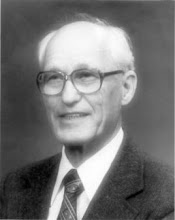The Great Rehash – Part 2
The Working Class Can Answer Each WEF Agenda Item in Its Own Interests
Below is the January 2021 WEF agenda couched in classless
liberal language. Each agenda item deserves a ringing militant working-class
reply which should be sent to the Canadian participants.
Monday 25 January: Designing cohesive, sustainable and resilient economic
systems
The agenda item speaks of economic “systems”. There are only two economic systems today. One capitalist and other socialist. Neither are static. Capitalism is in historic decline and
socialism in historical ascendency. Only
the latter has the ability to design the economy in the interests of the vast
majority, those who labour and create all wealth. The WEF agenda item is an admission that
capitalism is not cohesive sustainable and resilient otherwise why discuss such
deficiencies.
If the organizers of the WEF forum had the courage they
would state the agenda item as a question; “can
capitalism be redesigned to be cohesive sustainable and resilient and in whose
interest?” Capitalism has been
redesigned, reformed, reworked, reconfigured and always in the interest of its
oligarchs and monopoly power. In all of
its configurations from state monopoly capitalism and its most extreme form, fascism,
to all variants of bourgeois democratic economies, it remains the same system
of exploitation of wage labour for profit. To be redesigned, concessions must be wrung
from monopoly and its governments and to do that the working class must have
its own program that leads to socialism.
Tuesday 26 January: Driving responsible industry transformation and growth
The struggle to transform industry responsibly to ensure
its growth cries out for definition.
Industry in capitalism is privately owned and merged with
banking and private investor capital. Each capitalist state such as Canada that
has arrived at the imperialist stage of its development upholds as a sacred right
and freedom the buying and selling of industry on the international market as
any other commodity distorting national economic development as it suits
oligarchic investor interests. The sacrifice of entire economic regions and Canadian communities
is the result. There is no
responsibility to the people of Canada that any capitalist investor, domestic
or foreign recognizes. Their “nation” is
the global market and their loyalty is to maximum profit.
Industry to be transformed must be in the hands of the
people who created it and then it can be planned to grow to serve the needs of
society. That is when society can be said to be civil.
Wednesday 27 January: Enhancing stewardship of our global commons
The stewardship of the global commons is an invitation to a
discussion of why people’s sovereignty and the principle of the right of
nations to self determination and choosing its own path of economic development
including the control of the development or non-development of its own natural
resources is considered by finance capital to be barrier to profiteering from
the exploitation of the planet, the oceans and outer space. The WEF absolves
the representatives of capital of any such accountability.
Canada is a G7 NATO member state of the United Nations and
its finance capitalist class has never voluntarily respected much less
acknowledged any limitations on its exploitation of Canada’s resources or the
resources of the planet. The history of successive Canadian governments from its
colonial beginnings to the present time is a history of reorganizing
the commons, by force, into private property and where that was not
done to consider the commons, known in Canada as Crown Lands, to be open to the
penetration of private capital as a right.
The WEP agenda item demands a discussion of the restraints
and limitations to be placed on investor capital and above all its use of
military threats and interventions that accompany its goals to seize and
exploit natural resources of sovereign states, the oceans and outer space. The
agenda item also must include a discussion of international agreements
regarding the Artic and
Antarctic and the 1963 UN Declaration
banning the stationing of nuclear
weapons in outer space.
The appearance of arrogant nouveau riche
billionaires such as Elon Musk
who declare private capital is not bound by international treaties has resulted
in an international discussion of the need to reinforce
the provisions of the 1963 UN Treaty. The United
Nations Convention on the Law of the Sea as well as implementing the Paris
Agreements on global warming cry out for a discussion as to which
states and private investors routinely violate and ignore the welfare and
sustainability of the “commons” and to insist they be held accountable.
Thursday 28 January: Harnessing the technologies of the Fourth Industrial
Revolution
The transformative effect of new technologies and science
integrated with production can lift up all of impoverished humanity and
quickly. The WEF speaks eloquently about this but has no answer as to why it
isn’t happening.
Science and technology are categories of human activity
present in all class societies that profoundly effect the growth of the
productive forces. The WEF defining the effects of the discoveries of the
digital era as a Fourth Industrial Revolution is specious. Science and technology
under the system of capitalism regularly outpaces the ability of capitalist
governments to control its anti-social effects because the “geniuses of high
finance” appropriate such developments and subvert it to the service of maximum
profit.
To harness the technologies of the Fourth Industrial
Revolution means to “Put Monopoly Under Control” [i]
Politically it means to reject passivity and to organize mass intervention by
the working class and its organizations by advancing demands for public ownership
and control of domestic and foreign corporate power and subordinating it to a
defined national democratic plan that serves the people’s interest and accords
with the principle that the people will not be the victims of science and
technology but its rightful beneficiaries.
Friday 29 January: Advancing global and regional cooperation
Global and regional cooperation is relevant to the extent
that it is based on the principle and practice of peace, respect for
sovereignty and political independence of states and their right to choose
their own path of political and economic development as the only firm basis for
friendly relations between nations.
There are historical precedents and ample experience for
such a vision of human relations. In the modern era it was carried to its
highest point in the anti-fascist alliance of states, led by the Soviet Union,
the United States and Great Britain and which after great sacrifice defeated
Hitlerism and laid the basis for the most advanced expression of the will of
humanity for global peace and security, the founding of the United Nations, the
adoption of its Charter and all of the provisions and agencies that were
devised to uphold it.
The cold war competition during the post WW2 period between
the US-NATO alliance and the alliance of the Soviet Union and European
Socialist states was defined at various stages as peaceful coexistence,
détente, and relaxation of tensions. It
described the actions of diametrically opposed social systems interacting
without world nuclear war and deciding all economic relations by competition,
and all political differences by negotiations.
A discussion of regional and global cooperation today is in
the context of rising and declining economic powers, the imperialist USA in decline
and socialist China in ascendancy. Global realignment is the reality of our
time arising from the centrifugal political developments compelling all lesser
developed states to be attracted or repelled by either pole.
Global and regional cooperation is not recognized by
contending finance capitalist investor classes. Such interests do not subscribe
to any form of global or regional cooperation that is based on any
consideration other than the supremacy of financial and military power to
impose its will. What is recognized and
practiced is the formation of competitive trading blocs, military alliances,
competition for global and regional economic and political supremacy and to
consider all opposition to such power as manifestations of unacceptable
restraint on the export of capital.
The supremacy of international finance capital over all
economic development in the modern era is an anachronism and the struggle to
oppose it and overcome it has risen to the top of all agendas of any
international forum, capitalist or working class.
It is the purpose of the organizers of the WEF to evade the
essence of that struggle and to divest it of any sense of historical
materialist reality.
[i] “Put Monopoly Under Control”
was a publication of the Communist Party in 1964 authored by its Chairman Tim
Buck that addressed the advent of computer-controlled automation and its impact
on workers in Canada. It is a prototype of what a proletarian response to the
effects of science and technology should be today.
Where Buck refers to the advent of computer-controlled automation, the reader can substitute the 21st century definitions for the current stage of the scientific technological advances that the WEF has dubbed a fourth industrial revolution. Note: (when Buck wrote the pamphlet in 1964 there was a total of 700 computers installed in Canada)
With foresight what Buck wrote 57 years ago resonates today. Here are some excerpts.
“Revolutionary changes are
taking place in industry. The ultimate expression of this change is automation,
which is going to have revolutionary effects in the years immediately ahead.
“The fundamental thing about automation is that the techniques becoming available will mean completely different production facilities and processes from those we know. It is not simply a super-imposition of automation on a process now done by people. It will be a completely different manufacturing, etc. process.
The reader may say: “So what, many at the time were
saying what Buck said.”
The response must be as always, what are the conclusions that are presented by those who share the same observations of science and technological advances?
Here is what Tim Buck concluded from the incontrovertible facts of the “industrial revolution” extending from the 1960’s to 2021.
“The manufacturing industry
has become the biggest users of computers. This confronts the working class
with the question “What can be done right now?” The measures that must be
fought for now to protect even the most elementary interests of the workers affected
by automation and the communities in which they live, go beyond purely economic
demands such as shorter hours, higher wages and such, indispensable though they
are.
“Working people should put forward a demand for democratic public control of the introduction of automation and public responsibility for its effects upon those who are displaced by it. The exact form in which democratic public control will be exercised depends upon a number of factors., but it must include as a major participant representatives of the organized labour movement…





No comments:
Post a Comment